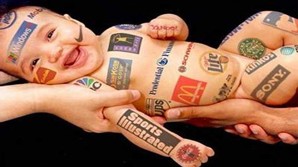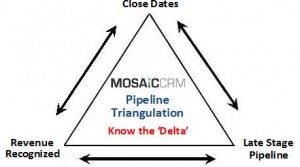 For the most part, we are all slaves to familiarity.
For the most part, we are all slaves to familiarity.
We rarely venture outside of the ‘familiar’, especially for such mundane things as the route to the office, or where we buy our milk, to what we eat. We constantly make decisions based on the ‘familiar’. As for more the important items such as a car or a home, the ‘familiar’ factors become increasingly more important and the degree to which we will pay is premium because ‘familiarity’ is virtually unlimited.
How important is familiarity?
It’s everything. We instantly and consciously (sometimes unconsciously) seek to satisfy our need for familiarity. It’s almost primal. If you don’t think so then why would a giant brand like Disney release blockbuster animations using familiar actor’s voices? The main reason is because it sells. It sells because we are enamored with the familiarity of the voices and the story. It’s a one-two punch that’s for all practical purposes, we find irrestable. This one-two formula works really well in the endorsement world as well. I hazard to guess what portion of the retail price Nike budgets on their endorsement athletes, but whatever it is, it’s huge and nobody is complaining about the results. More than that, it keeps one brand, Nike, ahead of all others by using the personal (and big) brands of the athletes.
Does familiarity breed content or contempt?
Familiarity may breed contempt in some circles but in selling it only creates confidence. If you doubt we buy everything based on the level of familiarity, then put this example into perspective. You get a call to pick up a half-gallon of milk for your kids on the way home. Now on the way to your car, a person unknown to you, dressed in dingy clothes and definitely in need of a shower proposes to you that he has some milk for sale, unbranded of course, and it’s only a buck. If you’re like most people, this simple product purchase is made only where you trust the vendor and perhaps even the brand. Naturally you will pay five times the strangers price and like Elsie the cow, you feel contented. Whether it’s milk or scotch, or a toothbrush, everything has its ‘contented’ price for the simple reason that we strongly relate to the things we know.
How does a customer decide?
It’s no mystery how most people make their decisions. If a machine made the decision then that’s a different story. However, you are dealing with a human being and most of the human race can’t avoid the emotional side of the buying equation. Get ‘familiar’ with these parameters because we all make decisions based on these factors:
- Customers prefer to choose familiar things
- Customers rely on the familiarity of relationships
Why? That’s easy. We want to minimize or even hope to eliminate our risk. And besides, customers are only interested in themselves.
MosaicCRM Experts Corner
The bigger the decision, the bigger the ‘familiar’ factor comes into focus.
We rely on ‘familiar’ relationships to satisfy our needs, either physical (logical) or emotional (feelings), to minimize our risks. The most pointed ‘familiarity’ example is ‘brand name’ choices. With brand names and ‘known’ references, there usually is little to decide about from a buyer’s point of view.
- With the advent of CRM tools like routine contact scheduling, key date tracking and automated personalized marketing, becoming familiar has become a straightforward job even for the most junior sales member.
Brand yourself. Maximize the risk doing business with anyone else.
Don’t have a billion dollars and a little shy on a $100 million endorsement account? No problem. As a sales person, manager or executive, you can accomplish a level of ‘brand’ familiarity to achieve the one-two punch.
- Try maximizing the risk of doing business with your competition in your customer’s mind. Your prospect must develop confidence that you’re the best choice. Your customer wants the confidence that they should continue to do business with you and not just at the ‘close’ of your sales cycle, but at each point in the sales process.
- This means that you can’t shortcut the business rapport development (familiarity of relationships) or forget about properly designing your CRM database as an information base (familiar things) from which you can then be ‘more familiar’.
_______________________________________________________________________________________________
Triangulation is the process of determining the location of a point by measuring angles to it from known points at either end. In MosaicCRM terms, triangulation is the process of determining the points that make up your pipeline and its ability to hone in on opportunities that have a high probability of closing. Click on the Icon for more information on how this works!
______________________________________________________________________________________________
 Written by Bill Noonan, CEO MosaicCRM
Written by Bill Noonan, CEO MosaicCRM
______________________________________________________________________________________________




